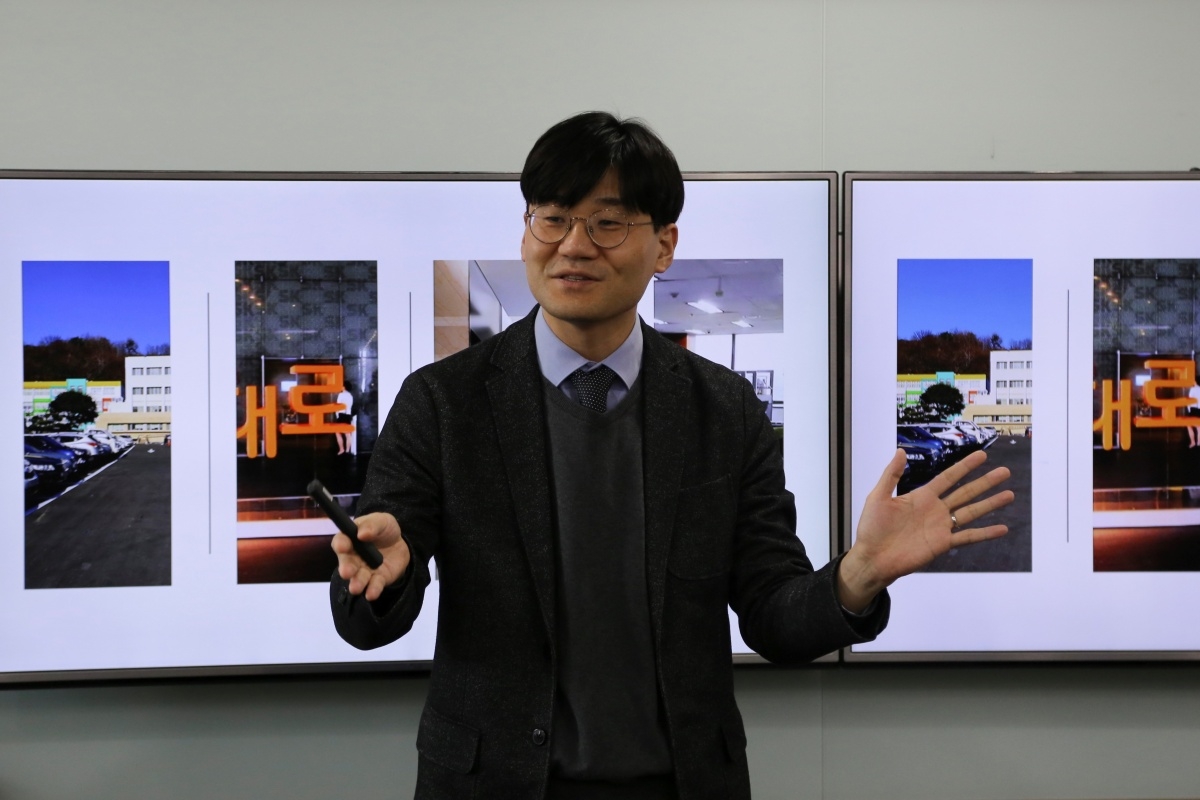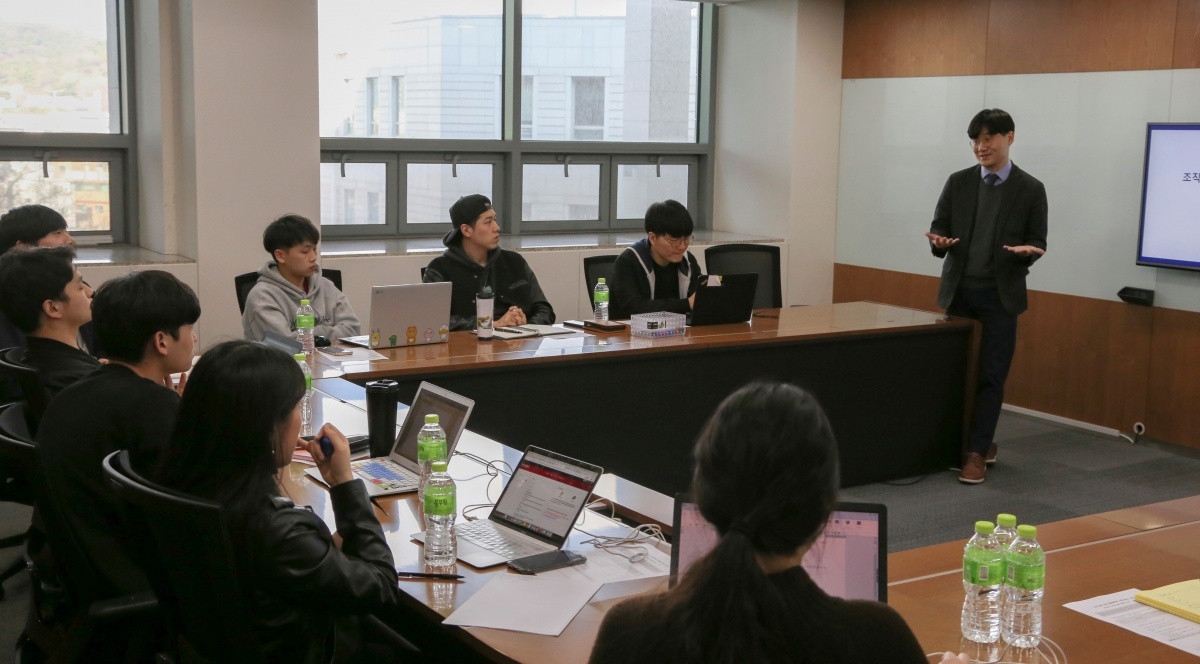뉴스
KUBS 소식
[Startup Institute Lecture on Demand #1] "Startup, who are you going to work with?" - Manager Kim Su
2019.04.29 Views 3259 경영대학
[Startup Institute Lecture on Demand #1] "Startup, who are you going to work with?" - Manager Kim Sung-joon

This year’s first ‘Lecture on Demand,’ hosted by Startup Institute, was held on April 2 at the Seung Myung-Ho Center for Entrepreneurship Education in KUBS Main Building. Kim Sung-joon, manager of the SK Leadership Development Center, gave a lecture on . Kim Sung-joon, who has completed his Ph.D. in management at KUBS, is in charge of diagnosing and analyzing SK Group's executive capabilities and conducting research on startups and large companies.
Manager Kim Sung-joon began his lecture by telling the story of how he could discover organizational culture in various parts of the company. "If you look at the composition of parking lots, daily interactions inside elevators, and the structure of the office, you can see how horizontal the organization is about its relationship," Kim said. "Given my past experiences of looking into different companies, I've come to think about how a startup should work and what kind of organizational culture a startup should have."
During the lecture, he talked about what kind of person he would start his own business with and what kind of talent he would look for. "Startups are likely to be at odds at the planning stage," Kim said. "It is important to try to understand and complement each other, whether the process is intuitive or logical." He also cited examples of difficulties in finding and hiring talented people, adding that "organizational culture" is very important because culture affects thoughts and attitudes. “Startups should also focus on creating attractive organizational cultures," he added.
Manager Kim Sung-joon began his lecture by telling the story of how he could discover organizational culture in various parts of the company. "If you look at the composition of parking lots, daily interactions inside elevators, and the structure of the office, you can see how horizontal the organization is about its relationship," Kim said. "Given my past experiences of looking into different companies, I've come to think about how a startup should work and what kind of organizational culture a startup should have."
During the lecture, he talked about what kind of person he would start his own business with and what kind of talent he would look for. "Startups are likely to be at odds at the planning stage," Kim said. "It is important to try to understand and complement each other, whether the process is intuitive or logical." He also cited examples of difficulties in finding and hiring talented people, adding that "organizational culture" is very important because culture affects thoughts and attitudes. “Startups should also focus on creating attractive organizational cultures," he added.

Every semester, Startup Institute provides startup education through its "Lecture on Demand," a working-level lecture series, and "Lecture Series," a special lecture series on startups and ventures. Classes are open courses, which means they are open to not only the employees of a tenant company but also anyone interested in starting a business. For related inquiries, you can contact the Startup Institute (02-3290-1699).


